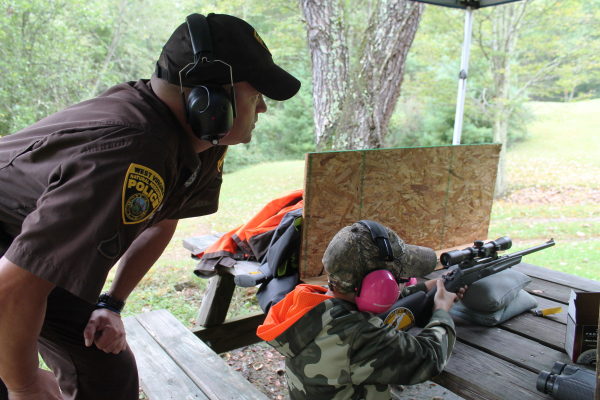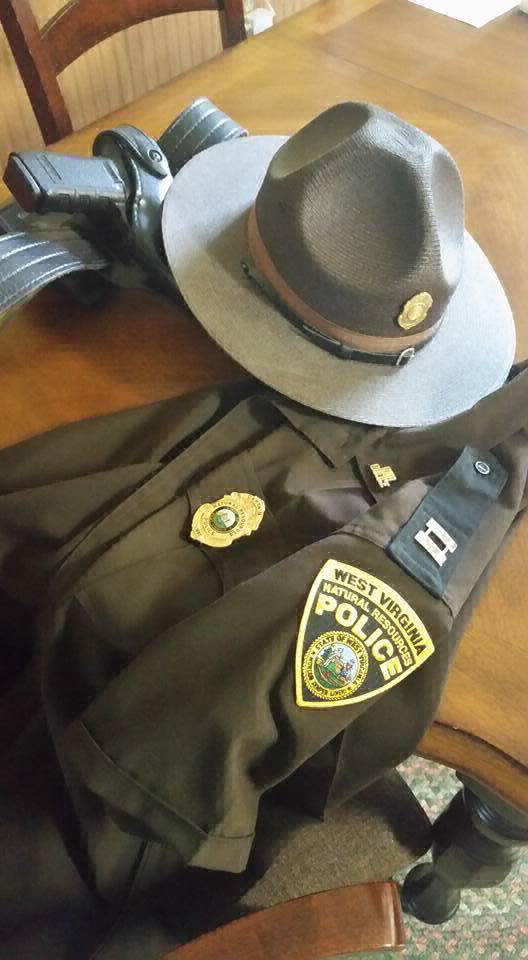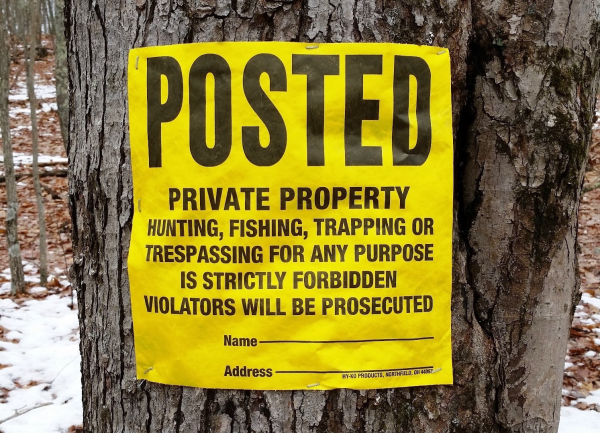
Corporal Richie Miller, who is now retired, helps out a youth during a National Wild Turkey Federation JAKES event in Monroe County, West Virginia.
Game Wardens have the most unique job in law enforcement. It could also be the worst or the best position for a law enforcement officer, depending on how you look at it. First, there is an aspect that no other agency which enforces the law has to deal with. Sometimes those who enforce fish and game laws have to explain that yes, they are a law enforcement officer, and yes, they do have the authority to arrest people for violations of the law. I lived and worked in this world for over 35 years, and I still don't really understand that part of it.
Next, there is usually an issue about the actual name for the department and the individual officer. To most hunters, they will always be the game warden, and that is OK if this is the correct name for the position in that state, often it is not. Conservation Officer, Natural Resources Police, Wildlife Officer, and Parks and Wildlife Officer are just a few of the names that are out there. Prudent sportsmen may want to learn the correct name for the job and save all the rabbit sheriff and opossum cop jokes for when you get to know the officers in your area better. Most DNR Officers around the country have full police powers and can arrest for anything, just like state police or sheriff departments.
Seeing things through the eyes of the game warden. Maybe one way to dispel some myths about game wardens is to try to see things as the officer does. I think many sportsmen out there may believe game wardens are in some way actually against hunting and are working night and day to catch hunters up in an activity that they fundamentally do not like. I don't think anything could be further from the truth. Most DNR Officers and game wardens are hunters and fishermen (and women), and it's probably why they got into this profession, to begin with. They love the outdoors, they love hunting and fishing, and they want to be around these activities and those who participate in it, that's why they took the job. Also, remember many officers in these positions are doing the job at a lower pay scale than other law enforcement positions in their state. They could transfer to another agency and make more money, but many stay on the job because they love what they are doing and believe in their mission, protecting wildlife and other natural resources.
Another phenomenon that I have observed over the years when it comes to the relationship between hunters and wildlife officers is the fact that game wardens get lied to a lot. Now no doubt, some of the public will tell fibs to most law enforcement, but for some reason, it seems to be worse with game wardens. There are times when some hunters want to be evasive with the truth when it comes to questions about fish and game bag limits and things like which side of the fence they may have been hunting on.
All of this may have something to do with violations in the realm of hunting are dealing with the thing most of us will say is our passion. We live to hunt, and when not hunting, we are thinking about big bucks, vast flights of ducks, or gobbling turkeys. So if we are caught up in crossing the line in a game law violation, this is something that is really hitting home for us. It is a lot different than getting pulled over on the interstate for speeding. We all have a problem admitting guilt, when it comes to something we are so obsessive about, it is doubly hard.

Traditionally known as game wardens, today’s enforcement personnel are sometimes identified differently as conservation officers, natural resource officers, and other titles.
|
I say this so that we'll remember what could be on the mind of an officer that we come upon in the field. If you have been fibbed to on the job regularly, you may not precisely be a trusting soul if you see what I mean. If we are checked by the officer, and he asks a few questions, think about not taking offense so quickly. Remember - in the end, game wardens have a job to do, and it's to enforce the laws that govern how we hunt our wildlife. Believe me when I tell you that this is not always so easy. Again, the officer has a job to do, and they must decide in every situation the best way to enforce the law.
Think about it this way, hunting may be the only sport where there is a set of rules, but no referee present to enforce them. If an infraction of the rules is alleged, the game officer becomes the referee. The officer must take what he can find, what he is told, and weigh it against the regulations. There is no instant replay to watch, the officer must call a ball or a strike for each incident. It is not easy, but it is what the job calls for.
Do officers sometimes make bad calls? Of course, they do. Game wardens are only human, and we all make mistakes. One thing I have noticed about hunters it that they tend to take the memory of a bad day with the game warden to the grave with them, much more so than a run-in with a policeman over a traffic violation. Not sure why this is so but it may involve that point we talked about dealing with something that we love to do. If you really feel that you have received a ticket from an officer unjustly, you should be able to talk about it but don't let it turn into a big argument. If you and the officer can't agree to take your ticket to the local magistrate or judge and ask for your day in court, which is your right.
There is another aspect here that hunters need to remember. No one in the law enforcement world deals with people with guns as much as game wardens. During hunting season, almost everyone they encounter is armed. DNR Officers know that virtually all of those they come upon are law-abiding citizens and would never harm an officer. The problem is they don't know that for sure when they first meet someone in the field in all of the many scenarios officers find themselves in. Game wardens are faced with not wanting to engage a group of hunters as they would in a felony stop, yet they are trained to be tactically safe. It can be a hard call in the field, the officer does not want to offend those who are simply out hunting, but he wants to go home at night as well.
Just like officers make mistakes, sportsmen do too. Experienced officers know this, so if some breach of the law has occurred, as hard as it is, just be forthright about it if confronted by the warden. Being upfront about any problems will go a lot further with him than trying to conceal the violation or, worse yet, lying about it. Like all sins, game law violations can have different degrees in which they're handled, and intent often plays a role in how the game warden handles the situation. For example, if a game warden comes across a novice hunter who is breaking a game law due to their inexperience, the officer might handle things much differently than catching someone who has hunting experience and knew exactly what he or she is doing. Veteran officers know this and it is up to them to sort it all out.

Finally, hunters need to remember that DNR Officers know the vast majority of sportsmen out there are the good guys. They obey the law, do their best to be safe in the field, and want to protect the resource for future generations. Getting to know your local game warden can be one of the best things to happen in your hunting career, hunters are the eyes and ears of these law enforcement professionals in the field. The officer learns that he can depend on you to report what you may see while hunting, and he may be able to share information with you about areas to hunt.
For an outdoorsman that wants to do law enforcement, becoming a game warden is the dream job, but it isn't always easy, and at times it is downright dangerous. Responsible hunters can join with them to make that job a little easier, and then everybody wins.